HOME-BASED SERVICES
MULTIPURPOSE SENIOR SERVICES PROGRAM
Serving Contra Costa, Napa & Solano Counties
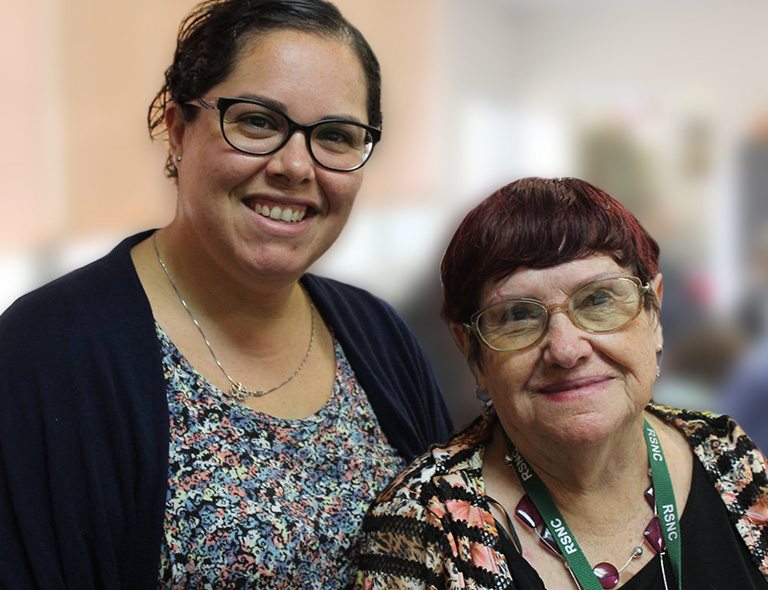 The Multipurpose Senior Services Program (MSSP) is a Medi-Cal program that provides intensive care management and services to people 65+ who meet the criteria to be placed in a skilled nursing facility but would prefer to remain in their own homes. The program helps prevent or delay nursing home placement by providing a complete assessment of the client’s physical, mental, and social well-being. The MSSP nurse and social worker partner with the participants, their doctors, and caregivers to create personalized care plans that support living safely at home.
The Multipurpose Senior Services Program (MSSP) is a Medi-Cal program that provides intensive care management and services to people 65+ who meet the criteria to be placed in a skilled nursing facility but would prefer to remain in their own homes. The program helps prevent or delay nursing home placement by providing a complete assessment of the client’s physical, mental, and social well-being. The MSSP nurse and social worker partner with the participants, their doctors, and caregivers to create personalized care plans that support living safely at home.
Services provided through MSSP may include minor home modification, supplemental personal and chore care, respite, transportation, counseling, therapy, meals, translation support, and other services.
The MSSP program saves taxpayer dollars. The cost of helping people stay in their homes is 45% lower than the cost of nursing home care. Unfortunately, this program is often slated for cuts in state budget negotiations and requires constant advocacy to help policymakers understand its value.
Based upon individual needs, MSSP arranges for services available in the community. If eligible, the program may purchase items and services not covered by Medi-Cal or Medicare, such as:
- Supplemental personal and chore care
- Respite care
- Home safety equipment, such as ramps and grab bars
- Personal Emergency Response System
- Counseling
- Transportation to medical appointments
- Minor home modifications
- Incontinence supplies
CONTRA COSTA
490 Golf Club Road
Pleasant Hill, CA 94523
(925) 682-6330
NAPA/SOLANO
1261 Travis Boulevard, Suite 210
Fairfield, CA 94533
(707) 708-0571
CALIFORNIA COMMUNITY TRANSITIONS
Serving Contra Costa, Sacramento & Solano Counties
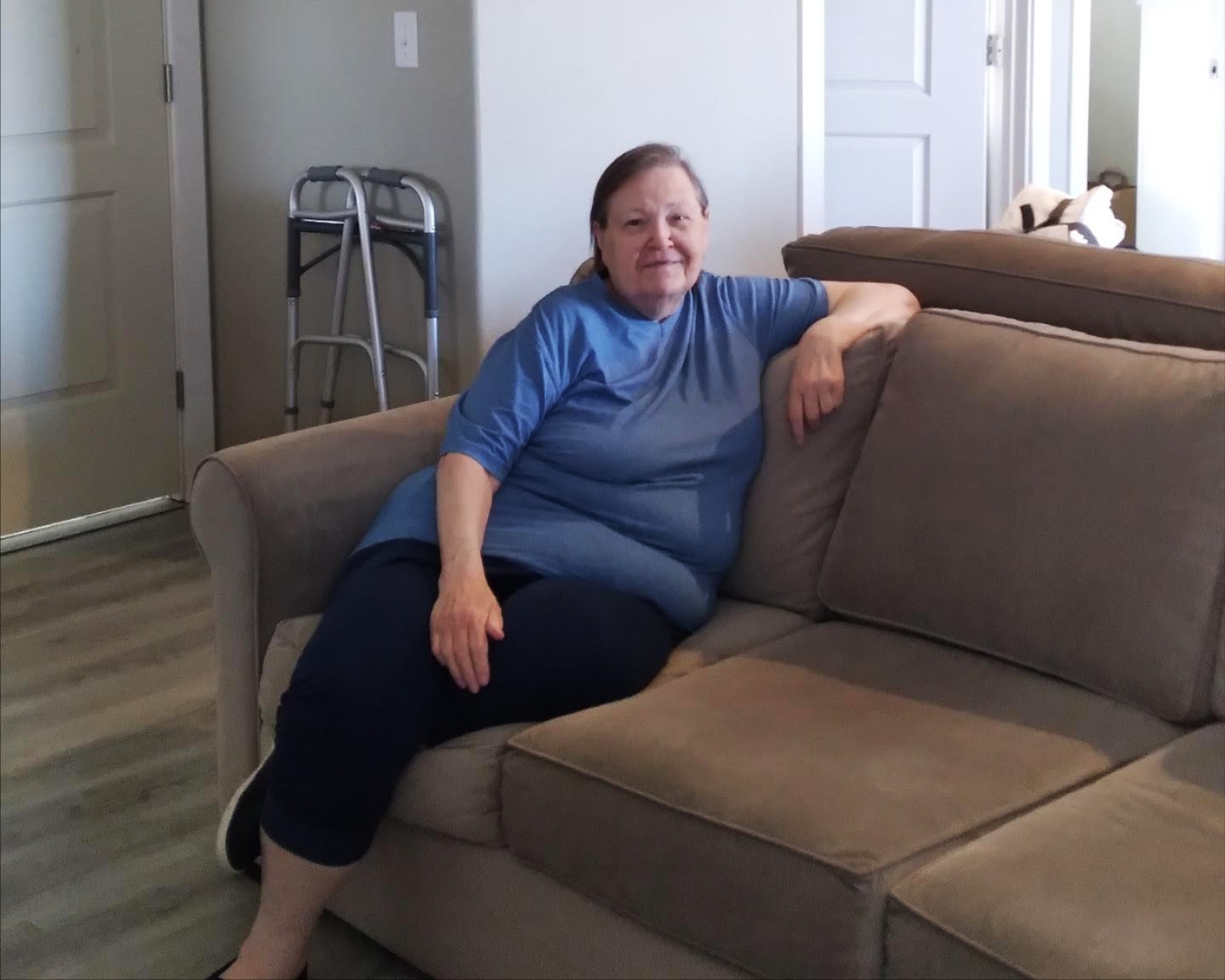 One-third of COVID-19 deaths in California have been among nursing home residents, and we know that seniors and people with disabilities are safer living at home. The California Community Transitions (CCT) project helps Medi-Cal eligible Californians who live in skilled nursing facilities move into their own homes or other community settings with appropriate supports to help them live safely.
One-third of COVID-19 deaths in California have been among nursing home residents, and we know that seniors and people with disabilities are safer living at home. The California Community Transitions (CCT) project helps Medi-Cal eligible Californians who live in skilled nursing facilities move into their own homes or other community settings with appropriate supports to help them live safely.
As California’s version of the national Money Follows the Person (MFP) program, the CCT project specifically applies to those who have been living in a skilled nursing facility for longer than a short stay, assisting them to move back to their home or community with the help of a Transition Coordinator. The Coordinator helps with exploring living choices and explaining the services the program offers, such as home and vehicle adaptation, assistive devices, transportation options, wheelchairs and other medical equipment, self-care training, and getting a personal care attendant. The program also provides assistance coordinating with physicians, family, the nursing facility, landlords and others.
Once the client has moved, the Transition Coordinator follows the participant for a year, helping with issues that arise and connecting the client to services that will allow them to remain at home. This program helps people make their own decisions about where and with whom to live, and it’s available free of charge to anyone 18 or over who qualifies. See below for more details.
CONTACT CCT
1811 C Street
Antioch, CA 95609
(925) 778-4171 x214
ALZHEIMER’S & MENTAL HEALTH
ALZHEIMER’S DAY CARE RESOURCE CENTERS
Serving Contra Costa County

Our award-winning Alzheimer’s Day Care Resource Centers (ADCRC) are available at the Mt. Diablo Center (MDC) in Pleasant Hill and The Bedford Center in Antioch. Designed for adults experiencing Alzheimer’s disease and/or mid-to-late stage dementia, the program is licensed by the California Department of Public Health. Each day is filled with a variety of psycho-social, cognitive, and recreational activities, encouraging laughter and allowing our participants to maintain their dignity and independence while providing much-needed respite for their caregivers and families.
Our multidisciplinary care team includes nurses, social workers, therapists, and psychological services providers who are trained to address the unique needs of those experiencing cognitive disorders. In partnership with caregivers, our expert team of professionals provide each client with an individualized assessment and care plan in order to maximize their success in the program.
Please Note: We cannot accommodate drop-in visits, but we are happy to schedule tours. To schedule a tour, please contact us.
MT. DIABLO CENTER
490 Golf Club Road
Pleasant Hill, CA 94523
THE BEDFORD CENTER
1811 C Street
Antioch, CA 95609
PREVENTION & EARLY ACCESS FOR SENIORS PROGRAM
Serving Solano County
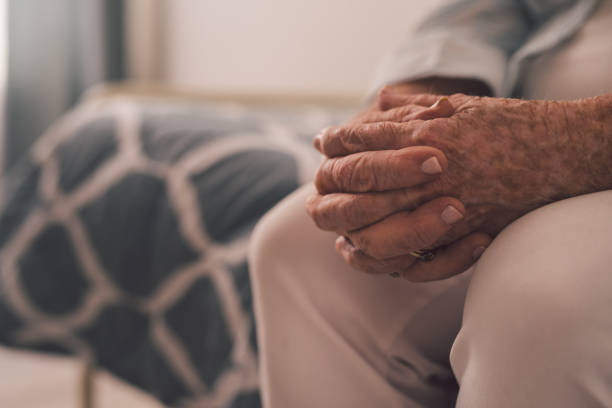
Mental health is essential to overall well-being, and approximately 20% of older adults experience some type of mental health concern. Depression and anxiety are the most prevalent, and older men have the highest suicide rate of any age group. While depression is not a normal part of aging, the Centers for Disease Control state that mental health issues are widely underdiagnosed in older adults and are often undertreated or untreated altogether.
The Prevention and Early Access for Seniors (PEAS) program is a mental health case management program that identifies adults 60+ in Solano County who are struggling to maintain a positive quality of life. The program provides intake, assessment, referral, brief and comprehensive case management, housing and transportation resources and other services aimed at improving quality of life. It also conducts education and outreach activities for both professionals and the community, focusing on universal prevention strategies that address high rates of depression, anxiety and isolation amongst seniors. PEAS services are available in English and Spanish and help to ensure that older adults struggling with mental health difficulties will get the intervention they need to avoid a crisis.
Provided through the Solano County Division of Mental Health with funds from Proposition 63, the Mental Health Services Act, the PEAS program serves older adults of any income level who agree to participate in the program. We also provide community awareness and education on older adult mental health and suicide-prevention.



CONTACT PEAS
1261 Travis Boulevard, Suite 210
Fairfield, CA 94533
(707) 708-0582
DAY PROGRAMS
ADULT DAY HEALTH CARE
Serving Contra Costa County
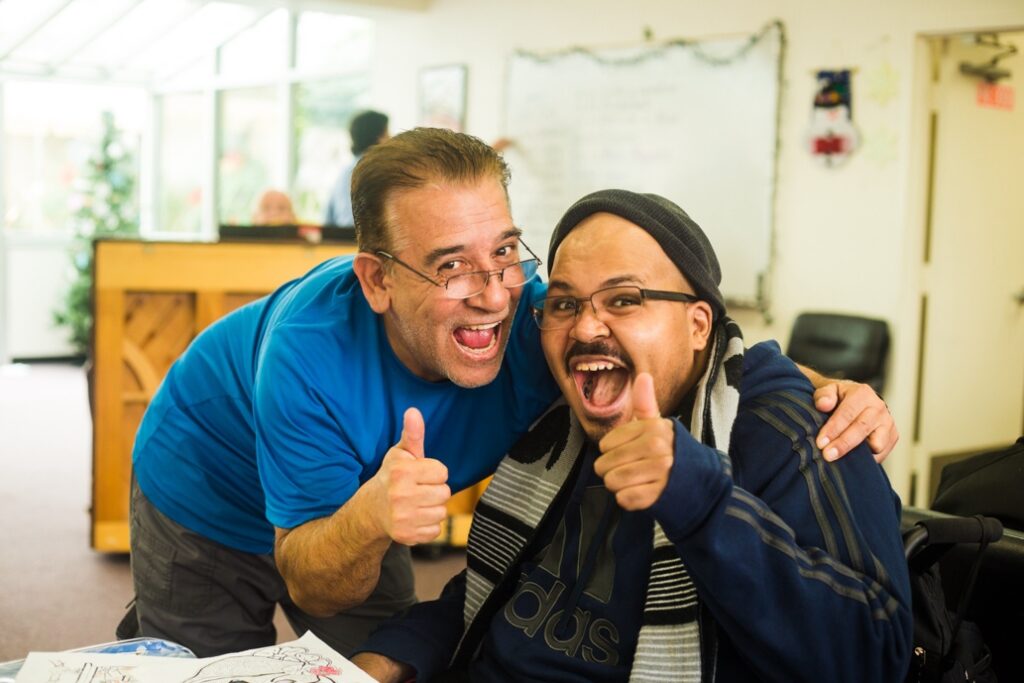 Adult Day Health Care (ADHC) was developed in California in the 1970s and has spread across the nation as a valuable program that can help those with the most serious health conditions thrive while living in their own homes instead of being forced to move to a skilled nursing facility. ADHC programs include individualized therapeutic, social, and health services provided by a multidisciplinary team of nurses, social workers, therapists, and other professionals who are experts in geriatric care.
Adult Day Health Care (ADHC) was developed in California in the 1970s and has spread across the nation as a valuable program that can help those with the most serious health conditions thrive while living in their own homes instead of being forced to move to a skilled nursing facility. ADHC programs include individualized therapeutic, social, and health services provided by a multidisciplinary team of nurses, social workers, therapists, and other professionals who are experts in geriatric care.
These services help frail or vulnerable older adults and people with disabilities maintain their health and social contacts, access nursing, occupational, and speech therapy, get exercise, prevent falls, and slow the deterioration of cognitive functioning by providing a sense of joy and belonging. As their loved ones are being safely cared for at the center for part of the day, caregivers are also provided with essential respite.
Our Mt. Diablo Center (MDC) in Pleasant Hill offers specialized multicultural programming for Russian and Farsi/Dari speakers. We also offer programming for those with mid-to-late stage Alzheimer’s disease in multiple languages.
ADHC services include a formal assessment process, a home visit, and an individualized plan of care to meet each participant’s needs.
Please Note: We cannot accommodate drop-in visits, but we are happy to schedule tours. To schedule a tour, please contact us.
MT. DIABLO CENTER
490 Golf Club Road
Pleasant Hill, CA 94523
THE BEDFORD CENTER
1811 C Street
Antioch, CA 95609
CAREGIVER SUPPORT
Family caregivers are the backbone of long-term care services provided in people’s homes — approximately 44 million Americans provide a total of $366 billion dollars of unpaid care annually. Caregivers are mostly women and often step into the role with little support or training.
Research shows that the mental, physical and emotional challenges involved can endanger the caregiver’s own health and well-being. Reducing the stress and frustration of caregiving is an essential long-term support.
SUPPORT GROUPS & EDUCATION
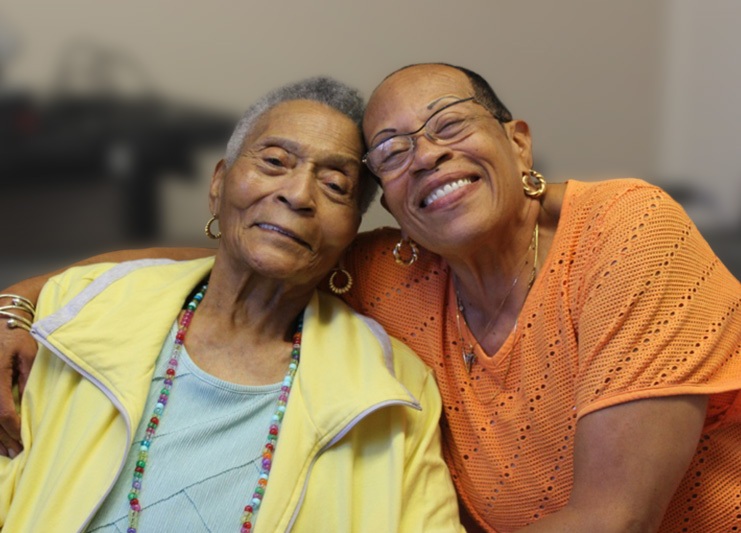 At Choice in Aging, we understand that we don’t just serve our clients, we serve caregivers as well. In addition to providing respite care, we are proud to present free monthly support groups for caregivers and their families. The meetings help caregivers navigate a life-changing diagnosis of Alzheimer’s disease or related dementias, develop coping skills, learn about legal and financial issues, get professional advice and learn about stress reduction, working with doctors, identifying resources, and more. The groups strive to answer tough questions with a focus on learning, sharing, planning, and invariably, laughing.
At Choice in Aging, we understand that we don’t just serve our clients, we serve caregivers as well. In addition to providing respite care, we are proud to present free monthly support groups for caregivers and their families. The meetings help caregivers navigate a life-changing diagnosis of Alzheimer’s disease or related dementias, develop coping skills, learn about legal and financial issues, get professional advice and learn about stress reduction, working with doctors, identifying resources, and more. The groups strive to answer tough questions with a focus on learning, sharing, planning, and invariably, laughing.
Our Alzheimer’s Support Group at the Mt. Diablo Center is a partnership with the Alzheimer’s Association and meets the third Wednesday of each month from 3-4:30 PM. The Bedford Center’s Caregiver Support Group meets the fourth Wednesday of each month rom 4-5:30 PM. To ensure the safety of all present, we will enforce COVID safety protocols. See our flyers below for more information.
FEATURES & BENEFITS
- Receive group & one-on-one support with a Choice in Aging Social Worker
- Achieve a better understanding of Alzheimer’s disease and memory loss
- Develop coping skills for the inevitable changes
- Learn to address legal and financial issues
- Hear knowledgeable and professional speakers provide education and information
- Acquire tools for stress reduction
- Learn how to partner with doctors and understand the resources available
- Ask questions and get answers
- Be part of a circle of support where you help yourself and other and know you are not alone on your journey
- Explore new topics monthly
- Offered in English and Spanish
ELIGIBILITY & COST
Our support groups are open to everyone and is FREE. For more information about our Alzheimer’s Support Group at the Mt. Diablo Center, please contact Betsy Flathers at (925) 682-6330 x103. To learn more about our Caregiver Support Group at The Bedford Center, please contact Cheryl Kremer-Young at (925) 778-4171 x212.
ALZHEIMER’S SUPPORT GROUP
Mt. Diablo Center
490 Golf Club Road
Pleasant Hill, CA 94523
(925) 682-6330 x103
CAREGIVER SUPPORT GROUP
The Bedford Center
1811 C Street
Antioch, CA 95609
(925) 778-4171 x212
PRESCHOOL & INTEGENERATIONAL PROGRAM
CHOICE IN LEARNING MONTESSORI
Pleasant Hill
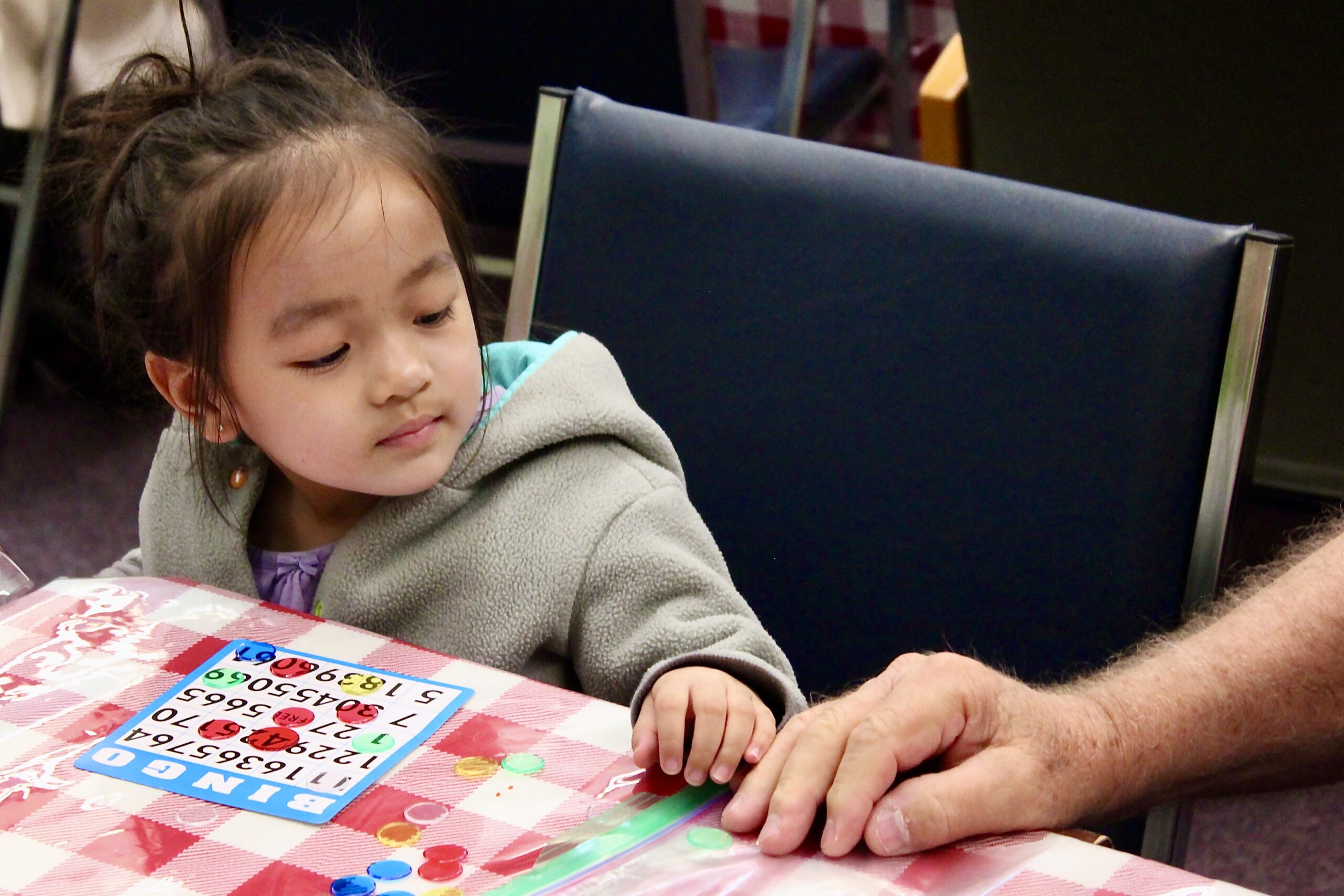 In 2017, a preschool that rented space from Choice in Aging announced that it was closing its doors imminently. Concerned parents came to us in a panic, and the Choice in Aging Board of Directors voted to license the preschool and create a new intergenerational model, now known as Choice in Learning. Staying true to the Montessori philosophy of self-directed learning and prepared environments, Choice in Learning provides continuity and expertise with the same director and staff.
In 2017, a preschool that rented space from Choice in Aging announced that it was closing its doors imminently. Concerned parents came to us in a panic, and the Choice in Aging Board of Directors voted to license the preschool and create a new intergenerational model, now known as Choice in Learning. Staying true to the Montessori philosophy of self-directed learning and prepared environments, Choice in Learning provides continuity and expertise with the same director and staff.
Additionally, the integration of the preschool into our programs has enabled us to develop an intergenerational component called the Young at Heart program, where elders and preschoolers interact and become good friends. They play games, sing and read stories together. Our older adults light up when they see the children, and students benefit from the time and attention of the seniors. The Young at Heart intergenerational program fosters openness, diversity, and respect for older adults as a core value of the children’s development. The program brings joy to all, making this endeavor a huge win-win!
A NOTE ABOUT ELDER ABUSE
We believe that excellent care in the community is the best way to prevent harm, neglect and abuse, and that it’s everyone’s responsibility to keep seniors safe. If you have information about potential elder abuse, call (833) 401-0832.
When prompted, enter your 5-digit zip code to be connected to Adult Protective Services in your county. This service operates 24 hours a day, 7 days a week.
ADDITIONAL RESOURCES
- Alzheimer’s Association
- An Elderly Wish Foundation
- California Senior Legislature
- Disability Rights California
- Family Caregiver Alliance
- Justice in Aging
